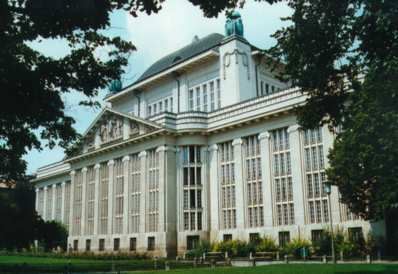The Croatian National Archives

The Croatian National Archives collect, research and arrange records produced by state agencies,
public institutions, important persons and organisations, from the early middle ages of Croatian
history. Records are important for all citizens. Besides giving evidence of each person's rights they
are a significant part of the national cultural heritage.
The history of our country shows that on many occasions we have been exposed to wars,
earthquakes, floods and similar disasters, including the deliberate destruction of documents carried
out by various occupying enemy forces.
According to the latest statistical data, 13 archives and other institutions, such as museums,
libraries and religious communities hold:
81,292 linear metres of conventional archives or 8.618 fonds and collections
7,000,000 microfilm frames (9,000 reels of negatives)
600,000 photographs
18,473,711 metres of film archives
9,286 records offices are supervised, or 257,194 linear metres of records
Each type of record requires different preservation conditions, which are usually provided in
archival repositories.
Problems occur when, because of natural or man-made disasters, records have to be placed
somewhere else. As in the rest of Europe we do not fear damage to repositories from hurricanes or
extremely high humidity, but we do fear terrorism, fire, flood, pollution, earthquakes, insects, wars,
theft and so on. In the event that some or all of these things happen, we need to have emergency
plans and programmes.
Source: www.unesco.org/webworld/archives/ sro_citra/CroatiaIntro.htm
The Croatian National Archives

The Croatian National Archives collect, research and arrange records produced by state agencies,
public institutions, important persons and organisations, from the early middle ages of Croatian
history. Records are important for all citizens. Besides giving evidence of each person's rights they
are a significant part of the national cultural heritage.
The history of our country shows that on many occasions we have been exposed to wars,
earthquakes, floods and similar disasters, including the deliberate destruction of documents carried
out by various occupying enemy forces.
According to the latest statistical data, 13 archives and other institutions, such as museums,
libraries and religious communities hold:
81,292 linear metres of conventional archives or 8.618 fonds and collections
7,000,000 microfilm frames (9,000 reels of negatives)
600,000 photographs
18,473,711 metres of film archives
9,286 records offices are supervised, or 257,194 linear metres of records
Each type of record requires different preservation conditions, which are usually provided in
archival repositories.
Problems occur when, because of natural or man-made disasters, records have to be placed
somewhere else. As in the rest of Europe we do not fear damage to repositories from hurricanes or
extremely high humidity, but we do fear terrorism, fire, flood, pollution, earthquakes, insects, wars,
theft and so on. In the event that some or all of these things happen, we need to have emergency
plans and programmes.
Source: www.unesco.org/webworld/archives/ sro_citra/CroatiaIntro.htm